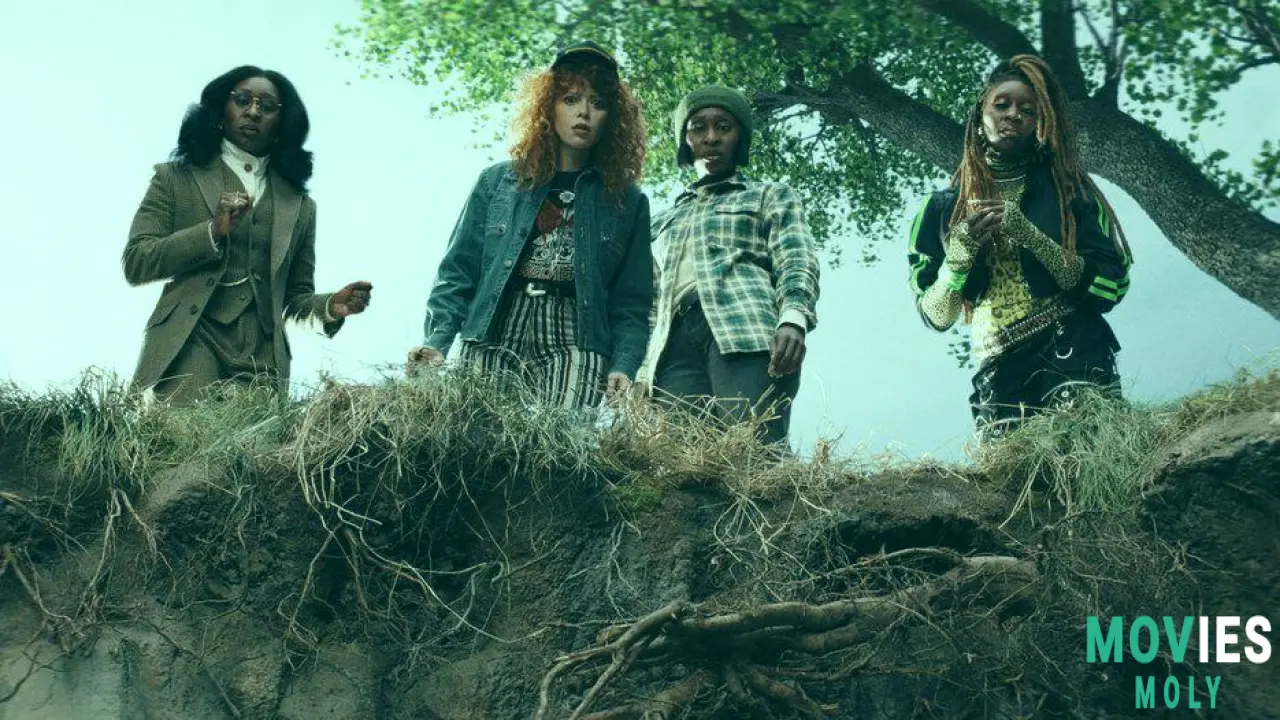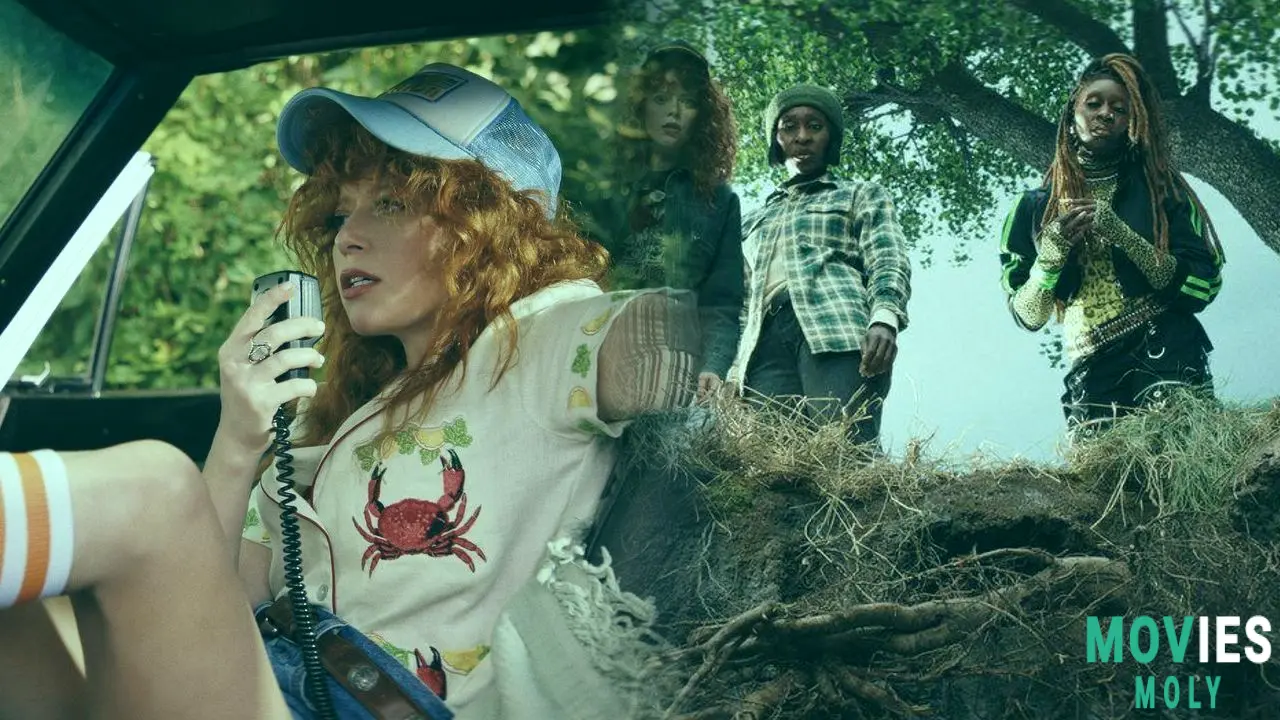Natasha Lyonne doesn’t just play characters — she inhabits and reshapes them. With the second season of Poker Face now streaming on Peacock, Lyonne returns not only as the sharp-tongued, truth-sniffing Charlie Cale, but also as a director and executive producer fully in control of her creative trajectory. This isn’t the same Lyonne who stumbled into fame as a kid in Pee-wee’s Playhouse. This is a Lyonne who’s spent nearly four decades turning genre work into personal expression.
From child star to cult icon: how Lyonne forged her own pathLyonne’s career began before she could write her name. Commercials, small roles, and teen parts peppered her early years. She was in American Pie before most of us even realized what type of movies those were. But like many child actors, she quickly found the industry had no real place for her once she grew out of the “cute” phase. Instead of conforming, she rebelled — both on screen and off. Her honesty about addiction and survival isn’t just part of her backstory; it’s embedded in every role she takes on.
Her breakthrough adult audience came with Orange Is the New Black. As Nicky Nichols, a sarcastic, self-destructive inmate, Lyonne mined her own experiences for a performance that resonated deeply with viewers. But even that wasn’t her final form. With Russian Doll, which she co-created, Lyonne stepped into the writer’s room and the director’s chair, turning a Netflix time-loop thriller into a meditation on trauma, mortality, and agency.
‘Poker Face’ Season 2 lets Lyonne experiment with style and storytelling

Now, in Poker Face — a series created by Rian Johnson — Lyonne is back in the genre game, but on her own terms. The show’s second season frees Charlie Cale from the immediate threat of the mob, giving her space to wander (literally and figuratively) across America. Lyonne describes the character’s journey as “existential,” and that’s a fitting word for a show that blends murder mysteries with soul searching.
“We gave ourselves permission to play,” Lyonne said in a recent interview. And play she does. Lyonne directs two episodes this season, stepping into a role she’s long desired. She calls her partnership with Johnson — who she affectionately dubs the “Alfred Hitchcock” to her “Salvador Dali” — a creative sweet spot. His precise vision and her chaotic energy mesh perfectly in a series that never stops having fun with its formula.
Cinematically inspired and character-driven: Lyonne’s signature is all over the show

Lyonne’s love for film history is on full display in Poker Face. She references vintage shows like Columbo and The Rockford Files and openly admits to borrowing directorial tricks from her childhood hero, Steven Spielberg. But Charlie Cale isn’t a retro copy — she’s a modern remix. She vapes instead of smoking, she wears cutoff shorts instead of trench coats, and she solves crimes with a weary affection for humanity.
“Charlie is a great lover of people,” Lyonne says. Unlike her Russian Doll character Nadia, who was stuck in her own head, Charlie is always outwards looking. Even when she’s isolated by circumstance — on the run, without a phone, chased by the mob — she connects with people. She gambles on human nature, and that makes her both vulnerable and unstoppable.
Guest stars galore and genre twists make season two a must-watch
The guest roster this season is as ambitious as Lyonne’s performance: Cynthia Erivo playing multiple roles, Giancarlo Esposito, Katie Holmes, John Mulaney, and more. Each episode drops Charlie into a new world, a new murder, and a new group of characters just waiting to underestimate her. Erivo’s triple-threat performance in the premiere — playing quintuplets (or is it sextuplets?) with distinct personalities — is a particular highlight, giving Lyonne the perfect foil for her signature deadpan.
These standalone stories continue the Columbo-style “howcatchem” formula, where we know the killer from the start, but the fun is in watching Charlie catch them. Lyonne leans into the trope, giving us moments that are knowingly nostalgic but never tired. She’s not imitating the past; she’s having a conversation with it.
Natasha Lyonne isn’t just surviving in Hollywood — she’s redefining what success looks like
What makes Lyonne’s current run so compelling is that it’s not about youth, beauty, or marketability — it’s about authenticity and control. She’s no longer waiting for roles that fit her. She’s creating them. Writing them. Directing them. And doing it all with a style that’s as unmistakably hers as her raspy voice and fiery red hair.
“This is the way the hair grows out of my head,” Lyonne says. And somehow, that image sums up everything about her career: natural, unfiltered, and utterly inevitable.
With Poker Face Season 2, Natasha Lyonne doesn’t just give us another memorable character. She gives us a masterclass in creative evolution. And the best part is, she’s not done yet.





